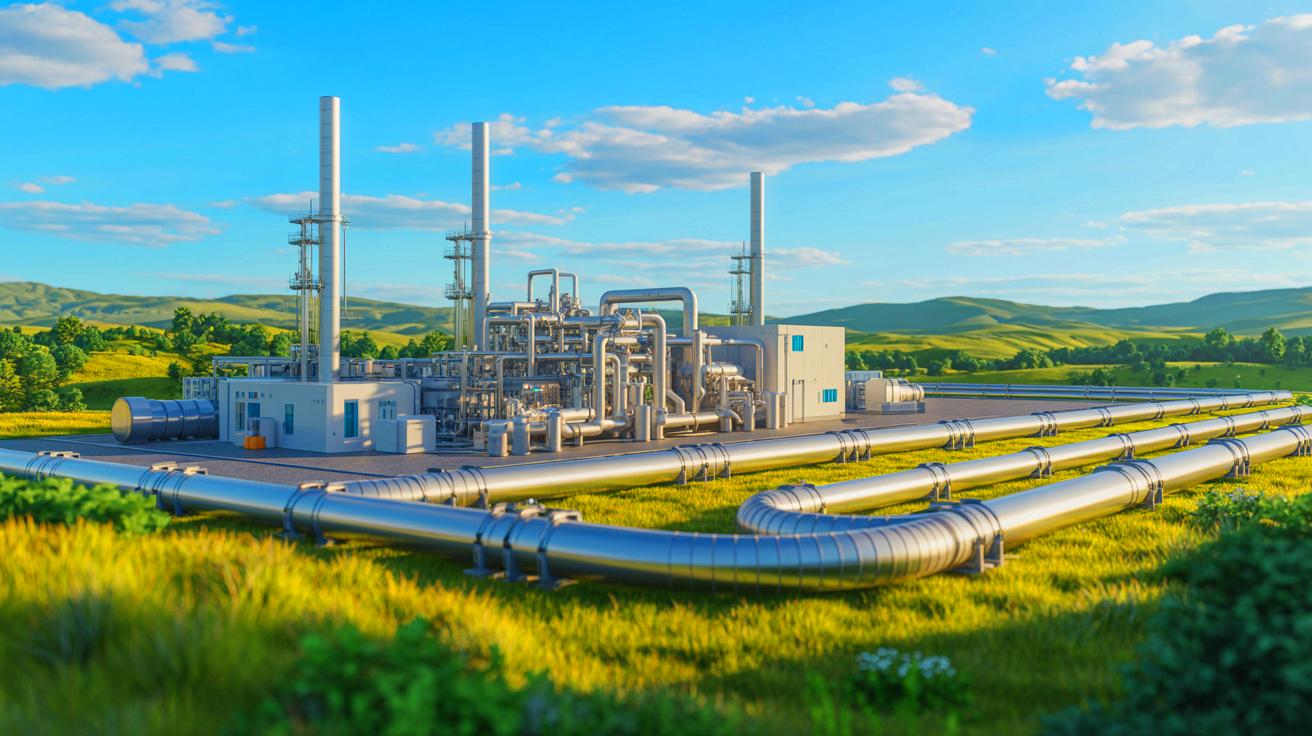IN A NUTSHELL
🌍 Global warming intensifies as experts warn that hydrogen, a potential clean fuel, may worsen climate change.
⚠️ Hydrogen leaks and accidental releases could significantly impact the climate if production and transport infrastructure lead to increased emissions.
🔧 Retrofitting pipelines for hydrogen transport is challenging due to its small molecular size, which makes it prone to leakage.
🛢️ Proper infrastructure and strict standards are essential to ensure hydrogen’s benefits are not negated by potential emission increases.
As global warming continues to intensify, the warnings from experts grow more urgent. The United Nations Secretary General has already metaphorically stated that we have crossed a critical threshold. Among the various solutions proposed to combat climate change, hydrogen stands out as both a promising ally and a potential adversary. While it is often touted as a clean fuel of the future, recent reports suggest that hydrogen might not be as environmentally friendly as once believed. This raises crucial questions about our reliance on hydrogen as a solution to the climate crisis.
Even Hydrogen Has a Flip Side: Is It Really Good for the Planet?
Hydrogen is frequently celebrated as a climate-friendly fuel, promising a future with minimal emissions. The idea is that hydrogen can be produced with low emissions, serving as a clean fuel source where its only emission would be water vapor. This makes hydrogen particularly appealing for reducing greenhouse gas emissions in hard-to-electrify sectors such as heavy industry and transportation. However, recent insights from scientists suggest that hydrogen may not be as clean as it is often portrayed.
One of the main concerns is that hydrogen leaks and accidental releases might exacerbate global warming in the short term. Although hydrogen does not directly trap heat like carbon dioxide or methane, it could still have a significant impact on the climate if the infrastructure required to produce and transport hydrogen results in increased emissions. This presents a paradox where the very solution designed to combat climate change may inadvertently contribute to it.
Experts’ Warning: Hydrogen Will Aggravate Global Warming If We Do This
Despite its reputation as a clean fuel, scientists caution that hydrogen leaks could actually accelerate global warming. Hydrogen is not inherently clean, especially when produced via methane reforming or from fossil fuels, which generate significant carbon emissions. Even when produced through electrolysis using renewable energy, any leakage of hydrogen into the atmosphere can exacerbate climate change. Hydrogen has more than 25 times the global warming potential of carbon dioxide over a 100-year period.
To achieve net-zero emissions, scientists estimate that leakage across the hydrogen supply chain must be kept below 3-4%. However, current studies indicate leakage rates can range from 3-20% from production to end use. As long as fossil fuels play a role in hydrogen production, any leakage undermines its climate benefits. The concern is that expanding hydrogen infrastructure, including pipelines and storage, might lead to increased leaks over time, further complicating the quest for a cleaner planet.
Infrastructure Doesn’t Help Either: An Added Problem for Hydrogen
While hydrogen is abundant, its capture and transport present numerous challenges. Unlike natural gas and oil, which can be transported via pipelines, hydrogen’s small molecular size makes it prone to leakage. This necessitates specially designed materials and infrastructure to prevent gas escape. Retrofitting natural gas pipelines for hydrogen transport risks increased leakage at joints, valves, and seals unless fully upgraded. Additionally, pipeline corrosion is a concern, as hydrogen can embrittle certain metals. New hydrogen pipelines are estimated to cost 2-3 times more than those for natural gas.
Underground storage options, such as salt caverns and aquifers, can hold substantial volumes of hydrogen, but leakage remains a significant issue. Storage tanks and other hydrogen infrastructure require advanced materials to minimize losses. With so many potential points for leaks across pipes, tanks, valves, and equipment, hydrogen infrastructure poses risks that could negate its climate benefits when compared to direct electrification. Therefore, strict standards and practices are imperative to safely transition to hydrogen while avoiding increased emissions.
Our current understanding of the relationship between global warming and hydrogen suggests that the situation is more complex than anticipated. The planet needs a thorough, clean, and decisive ecological transition, avoiding half measures like brown, gray, or black hydrogen. It’s essential to weigh the pros and cons of hydrogen as part of our climate strategy. As we move forward, will we heed the warnings of experts, or will hydrogen become another lost opportunity in our fight against climate change?
This article is based on verified sources and supported by editorial technologies.
Did you like it? 4.5/5 (29)

